AMMnet Committees

Committees offer members a hands-on way to engage more deeply with AMMnet. By joining, members help shape the network’s direction, develop valuable resources, and drive initiatives in priority areas. Each committee works toward specific goals, with members actively contributing, leading task forces, and supporting ongoing projects.

Best Practices Committee
AMMnet’s Best Practices Committee seeks to define, assess, evaluate, and disseminate best practices in both technical approaches and engagement processes for AMMnet members and the wider community to use as resources.
Best Practices Committee members organize into task forces according to committee initiatives.
Task forces:
The Hackathon Task Force is an initiative of the AMMnet Best Practices and Learning Committees. It consists of a group of volunteers under the Committees’ guidance to create a continual support space that anyone can access to learn how to code and how to code better, to upskill people from a distance and improve abilities in data handling, presentation and analysis, experimental design, quantitative understanding, coding and problem solving and transmission modelling.
Committee Member Roles & Responsibilities:
- To attend monthly committee meetings.
- To contribute to the strategic direction and ongoing evolution of best practices in
- engagement among stakeholders involved in malaria modeling and related activities
- and in technical aspects of data analysis and modeling.
- To identify and drive new initiatives that support the committee objectives.
- To assist in establishing and overseeing effective task forces to work on committee initiatives.
- To lead or participate in at least 1 task force to support delivery and execution of committee initiatives.
Committee Members
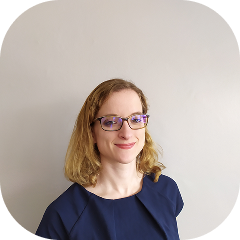

Manuela Runge is a Postdoctoral Research Collaborator at Northwestern University. Her work focuses on modeling of malaria intervention impact in countries to address programmatic questions on deployment options and sub-national targeting. Between 2015 and 2019, while at the Swiss Tropical and Public Health Institute, she was closely working together with the National Malaria Control Program in Tanzania to provide analytical and modelling support informing the Supplementary Midterm Malaria Strategic Plan 2018–2020. At AMMnet she is chair of the Best Practices Committee.


2022-Present
Manuela Runge is a Postdoctoral Research Collaborator at Northwestern University. Her work focuses on modeling of malaria intervention impact in countries to address programmatic questions on deployment options and sub-national targeting. Between 2015 and 2019, while at the Swiss Tropical and Public Health Institute, she was closely working together with the National Malaria Control Program in Tanzania to provide analytical and modelling support informing the Supplementary Midterm Malaria Strategic Plan 2018–2020. At AMMnet she is chair of the Best Practices Committee.


Justin Millar is a Research Scientist at PATH focusing on geospatial modeling and data science on the Malaria and NTDs team. Justin is originally from Michigan, USA, he did is Ph.D. at the University of Florida and a post-doc with the Malaria Atlas Project before joining PATH. Justin formerly chaired the Data & Technical Resources committee, which has now joined the new Best Practices Committee. Outside of work Justin enjoys running and hiking with his dog.


2022-Present
Justin Millar is a Research Scientist at PATH focusing on geospatial modeling and data science on the Malaria and NTDs team. Justin is originally from Michigan, USA, he did is Ph.D. at the University of Florida and a post-doc with the Malaria Atlas Project before joining PATH. Justin formerly chaired the Data & Technical Resources committee, which has now joined the new Best Practices Committee. Outside of work Justin enjoys running and hiking with his dog.
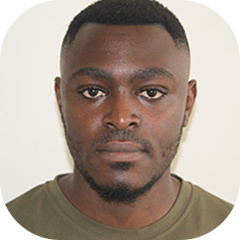

Franck J. Dongmo is a PhD student at the University of Dschang and is affiliated with the African Consortium in Modeling for Effective Vector Control (ACoMVeC). He is conducting his research within the mathematical modeling unit of the Centre for Research in Infectious Diseases (CRID), in collaboration with the National Malaria Control Program (NMCP). His academic pursuits encompass a broad range of interests, including partial differential equation analysis, dynamic systems, data analysis, optimal control, and optimization. Franck’s research primarily focuses on the study of pathogens and diseases that afflict both humans and animals, such as Onchocerciasis, Typhoid fever, Measles, HPV, and Malaria.


2022-Present
Franck J. Dongmo is a PhD student at the University of Dschang and is affiliated with the African Consortium in Modeling for Effective Vector Control (ACoMVeC). He is conducting his research within the mathematical modeling unit of the Centre for Research in Infectious Diseases (CRID), in collaboration with the National Malaria Control Program (NMCP). His academic pursuits encompass a broad range of interests, including partial differential equation analysis, dynamic systems, data analysis, optimal control, and optimization. Franck’s research primarily focuses on the study of pathogens and diseases that afflict both humans and animals, such as Onchocerciasis, Typhoid fever, Measles, HPV, and Malaria.


Emilie POTHIN, PhD, is leading the Analytics and Intervention Modelling group at the Swiss Tropical and Public Health institute and affiliated with the Clinton Health Access Initiative. She has a background in mathematical modeling and epidemiology of malaria. Her research combines the use of mathematical models and statistical methods to simulate transmission dynamics, estimate its intensity and apply these results to improve malaria control and elimination. She uses modelling to generate evidence for strategic planning of malaria control strategies involving combinations of established and new interventions. The focus of her work is to provide support to national malaria programs in countries by simulating impact of malaria interventions in given settings.


2022-Present
Emilie POTHIN, PhD, is leading the Analytics and Intervention Modelling group at the Swiss Tropical and Public Health institute and affiliated with the Clinton Health Access Initiative. She has a background in mathematical modeling and epidemiology of malaria. Her research combines the use of mathematical models and statistical methods to simulate transmission dynamics, estimate its intensity and apply these results to improve malaria control and elimination. She uses modelling to generate evidence for strategic planning of malaria control strategies involving combinations of established and new interventions. The focus of her work is to provide support to national malaria programs in countries by simulating impact of malaria interventions in given settings.


Dr. Shimaponda-Mataa is a Medical Parasitologist and Strategic Information/M&E Specialist. She currently serves as Lecturer in the department of Biomedical Sciences and School of Health Sciences at the University of Zambia. She lectures in Undergraduate Medical Parasitology, Epidemiology and Research methodology and Postgraduate Protozoology, Entomology and Critical Evaluation. Additionally, Dr. Shimaponda-Mataa serves as Assistant Dean Research in the School of Health Sciences where she chairs the Research and Publications committee.


2022-Present
Dr. Shimaponda-Mataa is a Medical Parasitologist and Strategic Information/M&E Specialist. She currently serves as Lecturer in the department of Biomedical Sciences and School of Health Sciences at the University of Zambia. She lectures in Undergraduate Medical Parasitology, Epidemiology and Research methodology and Postgraduate Protozoology, Entomology and Critical Evaluation. Additionally, Dr. Shimaponda-Mataa serves as Assistant Dean Research in the School of Health Sciences where she chairs the Research and Publications committee.


Isaac QUAYE holds a Bachelor of Science Degree in Human Settlement Planning. He is a young scholar researching spatial informality and dynamics to promote sustainable cities. My research interests include the application of Geographic Information Systems (GIS) in Africa; green space development; sustainable cities; collaborative public administration; and informal settlements redevelopment.


2022-Present
Isaac QUAYE holds a Bachelor of Science Degree in Human Settlement Planning. He is a young scholar researching spatial informality and dynamics to promote sustainable cities. My research interests include the application of Geographic Information Systems (GIS) in Africa; green space development; sustainable cities; collaborative public administration; and informal settlements redevelopment.
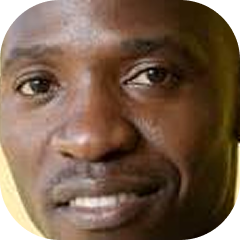

William WASSWA is a Ugandan lecturer, engineer and researcher. He serves as a senior lecturer in the Department of Biomedical Sciences and Engineering at Mbarara University of Science and Technology in Uganda. He holds a bachelor’s degree in Computer Engineering from Mbarara University, a master’s degree in Biomedical Engineering from University of Cape Town and a PhD in Biomedical Engineering from Mbarara University. His PhD research was on the application of A1 for Cervical Cancer diagnosis.He is an AfyaBora Global Health Leader Postdoctoral Fellow.


2022-Present
William WASSWA is a Ugandan lecturer, engineer and researcher. He serves as a senior lecturer in the Department of Biomedical Sciences and Engineering at Mbarara University of Science and Technology in Uganda. He holds a bachelor’s degree in Computer Engineering from Mbarara University, a master’s degree in Biomedical Engineering from University of Cape Town and a PhD in Biomedical Engineering from Mbarara University. His PhD research was on the application of A1 for Cervical Cancer diagnosis.He is an AfyaBora Global Health Leader Postdoctoral Fellow.
If interested in joining a committee or task force, contact us at info@ammnet.org.

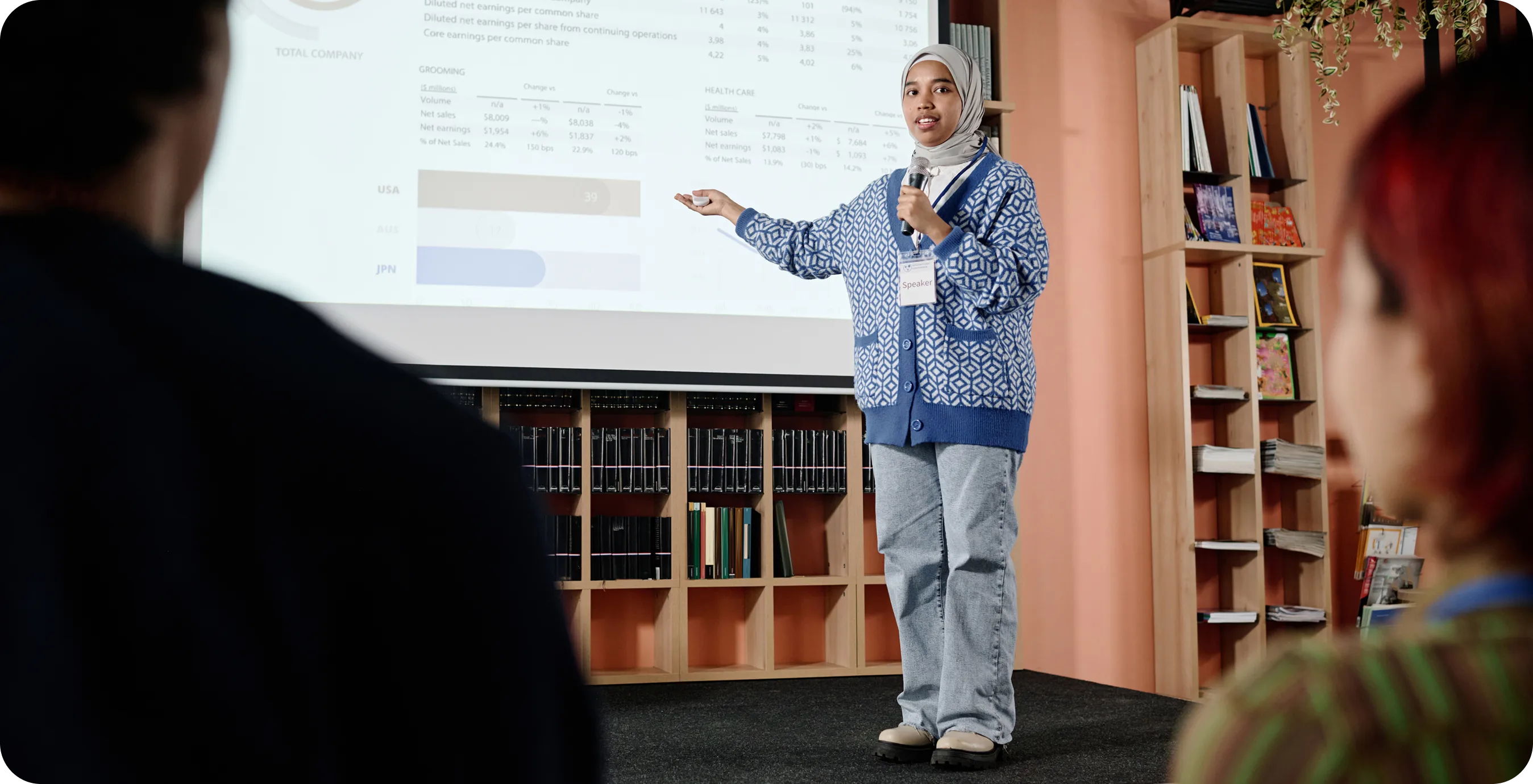
Career Development Committee
AMMnet’s Career Development Committee provides and shares opportunities for AMMnet members to grow in technical, communication, collaboration, and leadership skills toward the sustainable development of modeling, promotion of modellers and the better use of modeling by decision-makers.
Task forces:
The Mentorship Program Task Force fosters a supportive and enriching environment for promoting professional growth, knowledge exchange, and collaborative opportunities through a structured mentoring program with the goal of improving the quality of analytical support offered to malaria programs and advancing general malaria research.
The Gender Balance Task Force aims to develop and implement initiatives that help to bridge the gender gap in mathematical modeling and empower women to excel in this dynamic field.
Committee Membership:
The committee will have around 8 members. New members will be selected by the existing committee members. The goal is to provide balanced representation among members. There will be additional opportunities to engage with this committee’s work through task forces initiated by the committee, which will carry out the career development activities.
Committee Member Roles & Responsibilities:
- To attend all committee meetings.
- To contribute to the strategic direction and ongoing evolution of career development activities within AMMnet.
- To identify and drive new initiatives that support the committee objectives.
- To assist in establishing and overseeing effective task forces to work on committee initiatives.
- To lead or participate in at least 1 task force to support delivery and execution of committee initiatives.
Committee Members
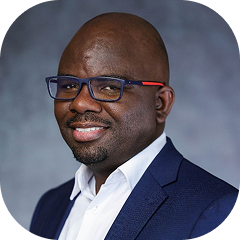

2022-Present
Dr. Vusi Mpendulo Magagula is a Senior Lecturer in the Department of Mathematics at the University of Eswatini. He specializes in Computational Mathematics and has recently expanded his research into mathematical modeling of infectious diseases, with a particular focus on Malaria and neglected tropical diseases. He holds a PhD in Applied Mathematics from the University of KwaZulu-Natal (South Africa), an MSc in Applied Mathematics from the University of California, Merced (USA), an MSc in Mathematics from Ohio University (USA), and a BSc in Mathematics and Computer Science from the University of Eswatini. Dr. Magagula currently serves on the Connections Committee and the Career Development Committee within the African Mathematical Modeling Network (AMMNet).


Dr. Vusi Mpendulo Magagula is a Senior Lecturer in the Department of Mathematics at the University of Eswatini. He specializes in Computational Mathematics and has recently expanded his research into mathematical modeling of infectious diseases, with a particular focus on Malaria and neglected tropical diseases. He holds a PhD in Applied Mathematics from the University of KwaZulu-Natal (South Africa), an MSc in Applied Mathematics from the University of California, Merced (USA), an MSc in Mathematics from Ohio University (USA), and a BSc in Mathematics and Computer Science from the University of Eswatini. Dr. Magagula currently serves on the Connections Committee and the Career Development Committee within the African Mathematical Modeling Network (AMMNet).
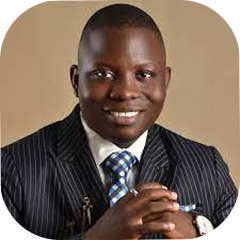

2022-Present
Progress Agboola is a Medical Doctor and Global Health Advocate with over six years of experience working on designing impact-oriented health projects and initiatives across Nigeria. He is the Director of Research at Vertex Research Hub, an initiative that trains and mentors research enthusiasts. Progress is a Student Ambassador at the Royal Society of Tropical Medicine & Hygiene (RSTMH) United Kingdom, Student Editor, International Journal of Medical Students (IJMS), and Youth Advocate, Africa Free of New HIV Infections (AfNHi). Progress has published research articles in international peer-reviewed journals, and his abstracts have been selected for presentations on national and international platforms. In 2021, he was recognized by Brightest Young Minds (BYM) as one of Africa’s brightest young minds whose bold ideas and actions are driving the continent forward. He is a 2022 Tallberg-SNF-Eliasson Global Leadership prize nominee.


Progress Agboola is a Medical Doctor and Global Health Advocate with over six years of experience working on designing impact-oriented health projects and initiatives across Nigeria. He is the Director of Research at Vertex Research Hub, an initiative that trains and mentors research enthusiasts. Progress is a Student Ambassador at the Royal Society of Tropical Medicine & Hygiene (RSTMH) United Kingdom, Student Editor, International Journal of Medical Students (IJMS), and Youth Advocate, Africa Free of New HIV Infections (AfNHi). Progress has published research articles in international peer-reviewed journals, and his abstracts have been selected for presentations on national and international platforms. In 2021, he was recognized by Brightest Young Minds (BYM) as one of Africa’s brightest young minds whose bold ideas and actions are driving the continent forward. He is a 2022 Tallberg-SNF-Eliasson Global Leadership prize nominee.
.webp)

2022-Present
Nadège is a Malaria Research Assistant at OCEAC Cameroon, working in the field of vector-borne disease control, notably malaria, focusing on improving the understanding the biology and genetics of mosquito vectors.
.webp)

Nadège is a Malaria Research Assistant at OCEAC Cameroon, working in the field of vector-borne disease control, notably malaria, focusing on improving the understanding the biology and genetics of mosquito vectors.


2022-Present
Franck J. Dongmo is a PhD student at the University of Dschang and is affiliated with the African Consortium in Modeling for Effective Vector Control (ACoMVeC). He is conducting his research within the mathematical modeling unit of the Centre for Research in Infectious Diseases (CRID), in collaboration with the National Malaria Control Program (NMCP). His academic pursuits encompass a broad range of interests, including partial differential equation analysis, dynamic systems, data analysis, optimal control, and optimization. Franck’s research primarily focuses on the study of pathogens and diseases that afflict both humans and animals, such as Onchocerciasis, Typhoid fever, Measles, HPV, and Malaria.


Franck J. Dongmo is a PhD student at the University of Dschang and is affiliated with the African Consortium in Modeling for Effective Vector Control (ACoMVeC). He is conducting his research within the mathematical modeling unit of the Centre for Research in Infectious Diseases (CRID), in collaboration with the National Malaria Control Program (NMCP). His academic pursuits encompass a broad range of interests, including partial differential equation analysis, dynamic systems, data analysis, optimal control, and optimization. Franck’s research primarily focuses on the study of pathogens and diseases that afflict both humans and animals, such as Onchocerciasis, Typhoid fever, Measles, HPV, and Malaria.
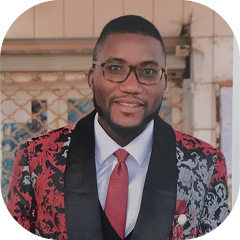

2022-Present
Mohamed is a member of the AMMnet Mentoring Task Force and Executive Director and Co-chair of Health Organisation Welfare (HOW), Cameroon. He is an Epidemiologist with a key interest in infectious diseases coupled with ten publications, including seven scientific peer-reviewed articles, two policy papers, and a book. He has worked with key journals, institutes and publishing houses, including Journal of Biosciences and Medicines, Cairn International, Journal of Parasitology and Research, International Journal of TROPICAL DISEASE & Health, Asian Journal of Biology, Nkafu Policy Institute, and Lambert Academic Publishing. He is a part-time instructor at INSAM/IUEs and University Institute of Leaders, Douala, Cameroon, since February 2021. He worked as the Casual Program Support Officer at the International Medical Corps, Yaounde, Cameroon, from October 2022 to January 2023. Prior to joining the HOW, Mohamed was a research fellow at the Nkafu Policy Instite of the Denis and Lenora Foretia Foundation for a year and volunteered with the GTR/SIDA at the West Regional Delegation of Public Health, Bafoussam Cameroon, for six months. He was a facilitator for the 2021 batch of the virtual internship program (VIP) at the West African Institute of Public Health (WAIPH), Nigeria.


Mohamed is a member of the AMMnet Mentoring Task Force and Executive Director and Co-chair of Health Organisation Welfare (HOW), Cameroon. He is an Epidemiologist with a key interest in infectious diseases coupled with ten publications, including seven scientific peer-reviewed articles, two policy papers, and a book. He has worked with key journals, institutes and publishing houses, including Journal of Biosciences and Medicines, Cairn International, Journal of Parasitology and Research, International Journal of TROPICAL DISEASE & Health, Asian Journal of Biology, Nkafu Policy Institute, and Lambert Academic Publishing. He is a part-time instructor at INSAM/IUEs and University Institute of Leaders, Douala, Cameroon, since February 2021. He worked as the Casual Program Support Officer at the International Medical Corps, Yaounde, Cameroon, from October 2022 to January 2023. Prior to joining the HOW, Mohamed was a research fellow at the Nkafu Policy Instite of the Denis and Lenora Foretia Foundation for a year and volunteered with the GTR/SIDA at the West Regional Delegation of Public Health, Bafoussam Cameroon, for six months. He was a facilitator for the 2021 batch of the virtual internship program (VIP) at the West African Institute of Public Health (WAIPH), Nigeria.
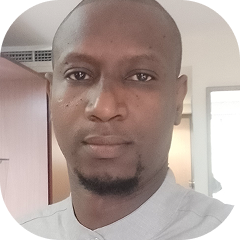

2022-Present
Moussa Kane is a PhD student at WAMCAD and Mathematics Lecturer at the Université Cheikh Anta Diop de Dakar (UCAD). He has played a leading role in operational research in mathematical modelling of malaria in Senegal in collaboration with the Laboratoire d’Ecologie, the Laboratoire d’Ecologie Vectorielle et Parasitaire (LEVP) at UCAD, in the context of malaria vector monitoring in support of the National Malaria Control Programme (PNLP).


Moussa Kane is a PhD student at WAMCAD and Mathematics Lecturer at the Université Cheikh Anta Diop de Dakar (UCAD). He has played a leading role in operational research in mathematical modelling of malaria in Senegal in collaboration with the Laboratoire d’Ecologie, the Laboratoire d’Ecologie Vectorielle et Parasitaire (LEVP) at UCAD, in the context of malaria vector monitoring in support of the National Malaria Control Programme (PNLP).
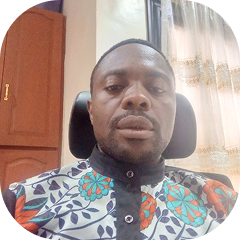

2022-Present
KANOUO Christin has a master’s degree in Mathematical Modeling and Scientific Computing from the Ecole Nationale Supérieure Polytechnique in Yaoundé. He is currently in the first year of his PhD and is working on “Spatio-temporal analysis and modeling of malaria in the city of Yaoundé in Cameroon”.


KANOUO Christin has a master’s degree in Mathematical Modeling and Scientific Computing from the Ecole Nationale Supérieure Polytechnique in Yaoundé. He is currently in the first year of his PhD and is working on “Spatio-temporal analysis and modeling of malaria in the city of Yaoundé in Cameroon”.


2022-Present
Luc S. DJOGBENOU is a Professor in Parasitology at the University of Abomey Calavi in Benin. From 2010 to 2012, he was a postdoctoral fellow at the Liverpool School of Tropical Medicine in the UK, where he is currently an Honorary Fellow Staff. Since 2012, he has worked to establish the Tropical Infectious Diseases Research Center and assumed the position of Deputy Director in 2020. He was appointed Director of the Institut Régional de Santé Publique at the same University in October 2021.


Luc S. DJOGBENOU is a Professor in Parasitology at the University of Abomey Calavi in Benin. From 2010 to 2012, he was a postdoctoral fellow at the Liverpool School of Tropical Medicine in the UK, where he is currently an Honorary Fellow Staff. Since 2012, he has worked to establish the Tropical Infectious Diseases Research Center and assumed the position of Deputy Director in 2020. He was appointed Director of the Institut Régional de Santé Publique at the same University in October 2021.


2022-Present
Carmène Sandra NGADJEU holds a PhD in Parasitology and Ecology, specifically in Medical entomology, from the University of Yaoundé I/OCEAC/Cameroon. For 7 years she has focused on the impact of micro and macro environmental factors and community practice on mosquito distribution and malaria prevalence within the context of larval source management. Her areas of expertise are vector surveillance and control, malaria distribution and prevalence, larval source management and community knowledge, and involvement on vector-borne diseases and environmental impact on malaria transmission. NGADJEU has more than ten publications in peer-reviewed journals. She is a member of five scientific associations and one of the administrative members of the AMMnet Francophone group.


Carmène Sandra NGADJEU holds a PhD in Parasitology and Ecology, specifically in Medical entomology, from the University of Yaoundé I/OCEAC/Cameroon. For 7 years she has focused on the impact of micro and macro environmental factors and community practice on mosquito distribution and malaria prevalence within the context of larval source management. Her areas of expertise are vector surveillance and control, malaria distribution and prevalence, larval source management and community knowledge, and involvement on vector-borne diseases and environmental impact on malaria transmission. NGADJEU has more than ten publications in peer-reviewed journals. She is a member of five scientific associations and one of the administrative members of the AMMnet Francophone group.


2022-Present
Dr. Benedicta MENSAH is an infectious disease epidemiologist whose research interests include the transmission dynamics of infectious diseases and how public health interventions deployable in resource-constrained settings can modify these dynamics.


Dr. Benedicta MENSAH is an infectious disease epidemiologist whose research interests include the transmission dynamics of infectious diseases and how public health interventions deployable in resource-constrained settings can modify these dynamics.
If interested in joining a committee or task force, contact us at info@ammnet.org.


Connecting Committee
AMMnet’s Connecting Committee connects AMMnet members with each other and with those in the broader malaria scientific, operational, and analytics communities. The connecting committee has established task forces that consist of passionate members working towards specific objectives, whether that’s recruiting speakers for our monthly seminars or other connection activities such as social media engagement.
Task forces:
The Seminar Planning Task Force is a group of volunteers under the Committee’s guidance who recruit speakers to fill the monthly seminar series. The AMMnet seminar series provides members with a forum to share knowledge and learn from experts within AMMnet and outside the organization with the purpose of using these knowledge and learnings to improve the quality of analytical support offered to malaria programs and advance general malaria research.
The Social Media Task Force is a group of volunteers under the Committee’s guidance who design, direct, and oversee social media strategy for AMMnet, including management of brand image, platform strategy, content sourcing, and content alignment, and monitor and evaluate Secretariat execution of social media activity.
Committee Membership:
New members will be selected by the existing committee members. The goal is to provide balanced representation among AMMnet members. There will be additional opportunities to engage with this committee’s work through task forces initiated by the committee.
Committee Member Roles & Responsibilities:
- Brainstorm speaker candidates to fill topics of interest expressed by the committee, review abstract submissions for topics relevant to the community, review submissions from committee survey, and recommend speakers to the committee.
- Contact potential speakers, communicate the purpose of the seminar series and AMMnet’s mission if not a member, propose dates.
- Aim to fill seminar dates at least 2 months in advance.
- Once solidify speakers to fill slots, ensure AMMnet administrator is introduced to speaker so she may discuss operational and administrative details (set up as panel speaker in Zoom, advertise to members, facilitate interpretation, permission to post recording, etc.).
Committee Members


2022-Present
Caitlin BEVER is Principal Scientist and Senior Research Manager of the malaria team at the Institute for Disease Modeling at the Bill & Melinda Gates Foundation. Her team uses simulation and data analysis to support decision-making that accelerates progress and reduces disease burden on the road to eradication. In AMMnet, Caitlin leads the Connecting Committee.


Caitlin BEVER is Principal Scientist and Senior Research Manager of the malaria team at the Institute for Disease Modeling at the Bill & Melinda Gates Foundation. Her team uses simulation and data analysis to support decision-making that accelerates progress and reduces disease burden on the road to eradication. In AMMnet, Caitlin leads the Connecting Committee.
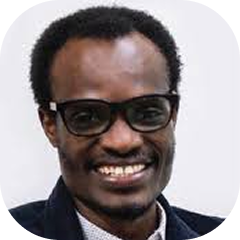

2022-Present
Isaiah Awintuen Agorinya is an Epidemiologist/Statistician and teaches in the Department of Epidemiology and Biostatistics, School of Public Health, University of Health and Allied Sciences at Hohoe. He currently teaches undergraduate courses and contributes to post-graduate studies. His undergraduate level courses include Health Management Information Systems and Emergency preparedness and outbreak investigations. At the postgraduate level, he contributes to Advanced biostatistics and Statistical methods. He also supervises students’ project work.


Isaiah Awintuen Agorinya is an Epidemiologist/Statistician and teaches in the Department of Epidemiology and Biostatistics, School of Public Health, University of Health and Allied Sciences at Hohoe. He currently teaches undergraduate courses and contributes to post-graduate studies. His undergraduate level courses include Health Management Information Systems and Emergency preparedness and outbreak investigations. At the postgraduate level, he contributes to Advanced biostatistics and Statistical methods. He also supervises students’ project work.


2022-Present
Monique AMBROSE is a Senior Research Scientist at the Bill & Melinda Gates Foundation. Doctor of Philosophy – PhD Biology, in her research, She developped mathematical models and quantitative tools to study the ecology and evolution of infectious diseases.


Monique AMBROSE is a Senior Research Scientist at the Bill & Melinda Gates Foundation. Doctor of Philosophy – PhD Biology, in her research, She developped mathematical models and quantitative tools to study the ecology and evolution of infectious diseases.


2022-Present
Cherlynn Dumbura is an Associate Research scientist in Data Science at the Centre for Sexual Health and HIV AIDS Research Zimbabwe (CeSHHAR). She is currently working in maternal and child health with a focus on the effects of climate change in sub-Saharan Africa. She is a Research Fellow on the PRECISE study (Health-Geography lab) and a Data Scientist on the HE2AT Center Research Project. Cherlynn is interested in how climate change is linked to diseases including vector habitat migration and expansion with respect to malaria. She has a passion for administration, learning, sharing knowledge and uses these skills in the AMMNet board, contributing to the Finance and Connections committees.


Cherlynn Dumbura is an Associate Research scientist in Data Science at the Centre for Sexual Health and HIV AIDS Research Zimbabwe (CeSHHAR). She is currently working in maternal and child health with a focus on the effects of climate change in sub-Saharan Africa. She is a Research Fellow on the PRECISE study (Health-Geography lab) and a Data Scientist on the HE2AT Center Research Project. Cherlynn is interested in how climate change is linked to diseases including vector habitat migration and expansion with respect to malaria. She has a passion for administration, learning, sharing knowledge and uses these skills in the AMMNet board, contributing to the Finance and Connections committees.


2022-Present
Laurette Mhlanga, PhD, is an expert in infectious diseases, mathematical modeling, and statistical analysis. As a Postdoctoral Research Fellow at Loyola University Chicago, she leads a project on malaria interventions for Nigeria’s 2026-2030 National Strategic Plan. Laurette is also a Research Associate at SACEMA, with notable publications on HIV, SARS-CoV-2, and Global Burden Diseases. Laurette has a PhD in computational Epidemiology from Stellenbosch University and is focused on being a key contributor to global public health efforts.


Laurette Mhlanga, PhD, is an expert in infectious diseases, mathematical modeling, and statistical analysis. As a Postdoctoral Research Fellow at Loyola University Chicago, she leads a project on malaria interventions for Nigeria’s 2026-2030 National Strategic Plan. Laurette is also a Research Associate at SACEMA, with notable publications on HIV, SARS-CoV-2, and Global Burden Diseases. Laurette has a PhD in computational Epidemiology from Stellenbosch University and is focused on being a key contributor to global public health efforts.


2022-Present
Samuel OSIKOYA is a Mathematical Biologist, Math Modeler, PhD student in malaria modelling.


Samuel OSIKOYA is a Mathematical Biologist, Math Modeler, PhD student in malaria modelling.
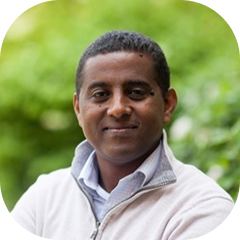

2022-Present
Research and Data Analyst at PATH. PhD in disease ecology used mathematical models to understand the effect of climate and other environmental variables on the transmission dynamics of malaria and other arboviral diseases.


Research and Data Analyst at PATH. PhD in disease ecology used mathematical models to understand the effect of climate and other environmental variables on the transmission dynamics of malaria and other arboviral diseases.
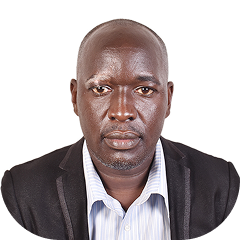

2022-Present
Edward Mawajje is a highly experienced public health specialist, global clinical researcher with an understanding of global contemporary applied public health challenges. A Fellow of the Royal Society of Tropical medicine and hygiene, member of AMMnet global consortium, AFREhealth, Association of Nurses in AIDS Care, ANAC, International Association of Physicians in AIDS Care, IAPAC and the European AIDS society. He is currently serving as the Program Technical Officer with the University research council, Uganda Health Activity with funding from USAID implementing a national wide 5-year integrated Program in HIV/TB, health systems strengthening.


Edward Mawajje is a highly experienced public health specialist, global clinical researcher with an understanding of global contemporary applied public health challenges. A Fellow of the Royal Society of Tropical medicine and hygiene, member of AMMnet global consortium, AFREhealth, Association of Nurses in AIDS Care, ANAC, International Association of Physicians in AIDS Care, IAPAC and the European AIDS society. He is currently serving as the Program Technical Officer with the University research council, Uganda Health Activity with funding from USAID implementing a national wide 5-year integrated Program in HIV/TB, health systems strengthening.


2022-Present
Dr. Vusi Mpendulo Magagula is a Senior Lecturer in the Department of Mathematics at the University of Eswatini. He specializes in Computational Mathematics and has recently expanded his research into mathematical modeling of infectious diseases, with a particular focus on Malaria and neglected tropical diseases. He holds a PhD in Applied Mathematics from the University of KwaZulu-Natal (South Africa), an MSc in Applied Mathematics from the University of California, Merced (USA), an MSc in Mathematics from Ohio University (USA), and a BSc in Mathematics and Computer Science from the University of Eswatini. Dr. Magagula currently serves on the Connections Committee and the Career Development Committee within the Applied Malaria Modeling Network (AMMnet).


Dr. Vusi Mpendulo Magagula is a Senior Lecturer in the Department of Mathematics at the University of Eswatini. He specializes in Computational Mathematics and has recently expanded his research into mathematical modeling of infectious diseases, with a particular focus on Malaria and neglected tropical diseases. He holds a PhD in Applied Mathematics from the University of KwaZulu-Natal (South Africa), an MSc in Applied Mathematics from the University of California, Merced (USA), an MSc in Mathematics from Ohio University (USA), and a BSc in Mathematics and Computer Science from the University of Eswatini. Dr. Magagula currently serves on the Connections Committee and the Career Development Committee within the Applied Malaria Modeling Network (AMMnet).


2022-Present
Has led the development, implementation and monitoring of communication plans for the malaria component of the Global Fund grant for 10 years. Former member of the RBM SBC Working Group Steering Committee, former Co-Chair of the RBM SBCC Vector Control Working Group and former RBM Francophone Language Ambassador. Coordinator of the Schoolchildren’s Project and malaria leader.


Has led the development, implementation and monitoring of communication plans for the malaria component of the Global Fund grant for 10 years. Former member of the RBM SBC Working Group Steering Committee, former Co-Chair of the RBM SBCC Vector Control Working Group and former RBM Francophone Language Ambassador. Coordinator of the Schoolchildren’s Project and malaria leader.
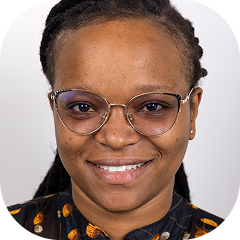

2022-Present
Gloria Salome Gabriel Shirima is a young scientist and researcher specializing in data science and mathematical modeling. She is currently pursuing her PhD in Applied Mathematics and Computational Science at The Nelson Mandela African Institution of Science and Technology (NM-AIST) in Arusha, Tanzania, with a placement at Swiss Tropical and Public Health. As a Research Scientist at Ifakara Health Institute, she focuses on modeling vector control interventions for malaria control in Tanzania and supports data analysis and visualization for various ongoing projects.


Gloria Salome Gabriel Shirima is a young scientist and researcher specializing in data science and mathematical modeling. She is currently pursuing her PhD in Applied Mathematics and Computational Science at The Nelson Mandela African Institution of Science and Technology (NM-AIST) in Arusha, Tanzania, with a placement at Swiss Tropical and Public Health. As a Research Scientist at Ifakara Health Institute, she focuses on modeling vector control interventions for malaria control in Tanzania and supports data analysis and visualization for various ongoing projects.
If interested in joining a committee or task force, contact us at info@ammnet.org.


Learning Committee
AMMnet’s Learning Committee fosters skill development activities and collates resources to facilitate ways for AMMnet members to learn from each other as well as from the broader malaria and modelling communities.
Learning Committee members organize into task forces according to committee initiatives. Currently, initiatives in development include: forming alliances and collaborations with external and internal stakeholders, developing/identifying metrics to measure impact of AMMnet initiatives, share success stories that highlight impact of AMMnet, develop and elaborate learning strategies to ensure long-term sustainability of learning materials and opportunities, foster skills development, and maintain a repository of training resources.
Members from the Committee also participate in the annual meeting task forces each year.
Task forces:
The Hackathon Task Force is an initiative of the AMMnet Best Practices and Learning Committees. It consists of a group of volunteers under the Committees’ guidance to create a continual support space that anyone can access to learn how to code and how to code better, to upskill people from a distance and improve abilities in data handling, presentation and analysis, experimental design, quantitative understanding, coding and problem solving and transmission modelling.
The Language Exchange Task Force is an English-French language exchange program that provides members an opportunity to practice and improve their speaking and listening skills. This initiative is based on interactive learning where a French-speaking member of AMMnet learns and practices English with the support of an English-speaking member of the network, and reciprocally. This language exchange model allows each member to strengthen their skills in a language that is not their own while contributing to their partner’s learning, thereby promoting mutual knowledge sharing and better interconnection within the AMMnet network. Initially focused on connection between English- and French-speaking AMMnet members, if successful this program will be extended to include Portuguese-speakers and potentially other languages.
Committee Membership:
New members will be selected by the existing committee members. The goal is to provide balanced representation among AMMnet members. There will be additional opportunities to engage with this committee’s work through task forces initiated by the committee.
Committee Member Roles & Responsibilities:
- To attend monthly committee meetings.
- To contribute to the strategic direction and ongoing evolution of learning activities.
- To identify and drive new initiatives that support the committee objectives.
- To assist in establishing and overseeing effective task forces to work on committee initiatives.
- To lead or participate in at least 1 task force to support delivery and execution of committee initiatives.
Committee Members
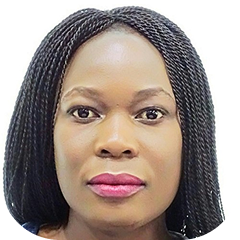

2022-Present
Cameline Orlendo, PhD, is an infectious disease modeler at the Analytics and Intervention Modeling group at the Swiss Tropical and Public Health Institute. She has a background in applied mathematics techniques, including mathematical modeling. Her work involves the use of mathematical models and statistical methods to model malaria interventions in different countries. The aim of her work is to provide evidence for strategic planning of malaria control and elimination strategies.


Cameline Orlendo, PhD, is an infectious disease modeler at the Analytics and Intervention Modeling group at the Swiss Tropical and Public Health Institute. She has a background in applied mathematics techniques, including mathematical modeling. Her work involves the use of mathematical models and statistical methods to model malaria interventions in different countries. The aim of her work is to provide evidence for strategic planning of malaria control and elimination strategies.
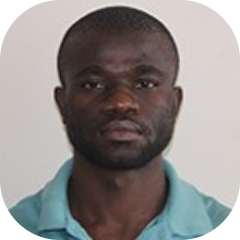

2022-Present
Kuipou William holds a PhD in Biological Physics with a core emphasis on the spatio-temporal transport and distribution of biological agents. His interest in malariology lies in gaining deep insights through the assessment of the spatio-temporal distribution of malaria vectors under various eco-climatic settings. Kuipou William’s work emphasizes the adaptive behaviors of vectors. He is currently affiliated with the Centre for Research in Infectious Diseases (CRID), where he drives capacity-building initiatives, conducts research on pressing needs, and collaborates through secondment with the National Malaria Control Program (NMCP).


Kuipou William holds a PhD in Biological Physics with a core emphasis on the spatio-temporal transport and distribution of biological agents. His interest in malariology lies in gaining deep insights through the assessment of the spatio-temporal distribution of malaria vectors under various eco-climatic settings. Kuipou William’s work emphasizes the adaptive behaviors of vectors. He is currently affiliated with the Centre for Research in Infectious Diseases (CRID), where he drives capacity-building initiatives, conducts research on pressing needs, and collaborates through secondment with the National Malaria Control Program (NMCP).


2022-Present
Olawale Awe is a statistician, research professor, and data scientist. He is Vice President of Global Statistical Engagements for LISA 2020 and the International Association for Statistics Education (IASE), as well as an elected council member of the International Statistical Institute (ISI). With over 100 interdisciplinary publications, his research focuses on machine learning, statistical modeling, and AI in disease modeling. He also leads the machine learning research team at the Statistical Learning Laboratory (SaLLy) at the Federal University of Bahia, Brazil, where he drives key research, capacity building, and outreach initiatives.


Olawale Awe is a statistician, research professor, and data scientist. He is Vice President of Global Statistical Engagements for LISA 2020 and the International Association for Statistics Education (IASE), as well as an elected council member of the International Statistical Institute (ISI). With over 100 interdisciplinary publications, his research focuses on machine learning, statistical modeling, and AI in disease modeling. He also leads the machine learning research team at the Statistical Learning Laboratory (SaLLy) at the Federal University of Bahia, Brazil, where he drives key research, capacity building, and outreach initiatives.
.webp)

2022-Present
Nadège SONHAFOUO CHIANA is a Medical Entomologist at the organization for the coordination of the fight against endemic diseases in central Africa (OCEAC), Yaoundé, Cameroon and PHD student at the University of Buea, Cameroon. Her research interest focuse on malaria, mosquito resistance to insecticides and patterns of pesticides usage in agriculture. She is also a member of the AMMnet Career Development Committee, the Regional AMMnet Cameroon Chapter, the PAMCA Africa, PAMCA WiVC and PAMCA Cameroon Chapter.
.webp)

Nadège SONHAFOUO CHIANA is a Medical Entomologist at the organization for the coordination of the fight against endemic diseases in central Africa (OCEAC), Yaoundé, Cameroon and PHD student at the University of Buea, Cameroon. Her research interest focuse on malaria, mosquito resistance to insecticides and patterns of pesticides usage in agriculture. She is also a member of the AMMnet Career Development Committee, the Regional AMMnet Cameroon Chapter, the PAMCA Africa, PAMCA WiVC and PAMCA Cameroon Chapter.


2022-Present
Emma is a University of Manchester Future Leaders Research Fellow in Health Inequalities focusing on developing mathematical models and complementary statistical inference frameworks to describe dynamics of vectors and vector-borne diseases. Her aim is to improve estimates of how vector-control tools impact disease transmission to better inform the selection of interventions in setting-specific scenarios. Her work particularly focuses on health inequalities driven by gaps in protection due to individuals or communities’ socio-economic characteristics. She has been a member of AMMnet since 2021; giving seminars, organising workshops and working towards building capacity for member training. She currently leads partnership collaboration as part of her role in the committee.


Emma is a University of Manchester Future Leaders Research Fellow in Health Inequalities focusing on developing mathematical models and complementary statistical inference frameworks to describe dynamics of vectors and vector-borne diseases. Her aim is to improve estimates of how vector-control tools impact disease transmission to better inform the selection of interventions in setting-specific scenarios. Her work particularly focuses on health inequalities driven by gaps in protection due to individuals or communities’ socio-economic characteristics. She has been a member of AMMnet since 2021; giving seminars, organising workshops and working towards building capacity for member training. She currently leads partnership collaboration as part of her role in the committee.
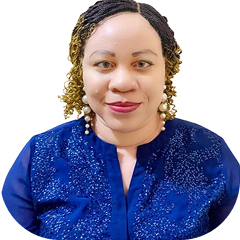

2022-Present
Debra Ukamaka Okeh is a Global Health Specialist Physician at Federal Medical Centre Umuahia in Abia State, Nigeria. She is a Mathematical Modelling Mentor and a Fellow of the Nigeria Malaria Modelling Fellowship Programme. She has honed her skills in providing modelling and analytical support to the Nigeria Malaria Elimination Programme. Debra is a member of the AMMnet Learning Committee, the Research subgroup at SMC Alliance, and serves as the Assistant General Secretary at AMMnet Nigeria.


Debra Ukamaka Okeh is a Global Health Specialist Physician at Federal Medical Centre Umuahia in Abia State, Nigeria. She is a Mathematical Modelling Mentor and a Fellow of the Nigeria Malaria Modelling Fellowship Programme. She has honed her skills in providing modelling and analytical support to the Nigeria Malaria Elimination Programme. Debra is a member of the AMMnet Learning Committee, the Research subgroup at SMC Alliance, and serves as the Assistant General Secretary at AMMnet Nigeria.


2022-Present
Olufemi Oroge, a Medical Doctor, is the Malaria Elimination Programme Manager and the Infection Prevention and Control Officer for Osun State, Nigeria. A fellow of the Nigeria Malaria Modelling Fellowship, he brings over ten years of experience training senior health workers on monitoring, evaluation, and malaria case management. Dr. Oroge utilizes infectious disease modeling to inform and guide policy development for the control of malaria and other infectious diseases.


Olufemi Oroge, a Medical Doctor, is the Malaria Elimination Programme Manager and the Infection Prevention and Control Officer for Osun State, Nigeria. A fellow of the Nigeria Malaria Modelling Fellowship, he brings over ten years of experience training senior health workers on monitoring, evaluation, and malaria case management. Dr. Oroge utilizes infectious disease modeling to inform and guide policy development for the control of malaria and other infectious diseases.


2022-Present
Emilie Pothin, PhD, is leading the Analytics and Intervention Modelling group at the Swiss Tropical and Public Health Institute and affiliated with the Clinton Health Access Initiative. She has a background in mathematical modeling and epidemiology of malaria. Her research combines the use of mathematical models and statistical methods to simulate transmission dynamics, estimate its intensity, and apply these results to improve malaria control and elimination. She uses modelling to generate evidence for strategic planning of malaria control strategies involving combinations of established and new interventions. The focus of her work is to provide support to national malaria programs in countries by simulating impact of malaria interventions in given settings. Emily is also a member of the AMMnet Board and Finance committee.


Emilie Pothin, PhD, is leading the Analytics and Intervention Modelling group at the Swiss Tropical and Public Health Institute and affiliated with the Clinton Health Access Initiative. She has a background in mathematical modeling and epidemiology of malaria. Her research combines the use of mathematical models and statistical methods to simulate transmission dynamics, estimate its intensity, and apply these results to improve malaria control and elimination. She uses modelling to generate evidence for strategic planning of malaria control strategies involving combinations of established and new interventions. The focus of her work is to provide support to national malaria programs in countries by simulating impact of malaria interventions in given settings. Emily is also a member of the AMMnet Board and Finance committee.
If interested in joining a committee or task force, contact us at info@ammnet.org.


Other Task Forces
Local Chapter Development Task Force:
The Local Chapter Development task force advises the Board on policies and procedures for the development of AMMnet local chapters. The task force also reviews, evaluates local chapter applications and provides the Governance Committee and Board with a recommendation of whether to approve for establishment.
Small Event Award Review Task Force:
This task force reviews applications for funding, evaluates and scores each, provides feedback to each applicant, and selects the top submissions for funding.
Annual Meeting Planning Task Force:
This task force collaborates with the Board and Committees to develop the scientific program for the annual meeting. They define the theme and goals of meeting, select speakers, invite speakers, panelists, moderators, facilitators, etc. The task force actively participates in facilitating the event the day of the meeting.
If interested in joining a committee or task force, contact us at info@ammnet.org.


Join the Commitee
Send an email to info@ammnet.org if you are interested in participating in a committee or task force.



